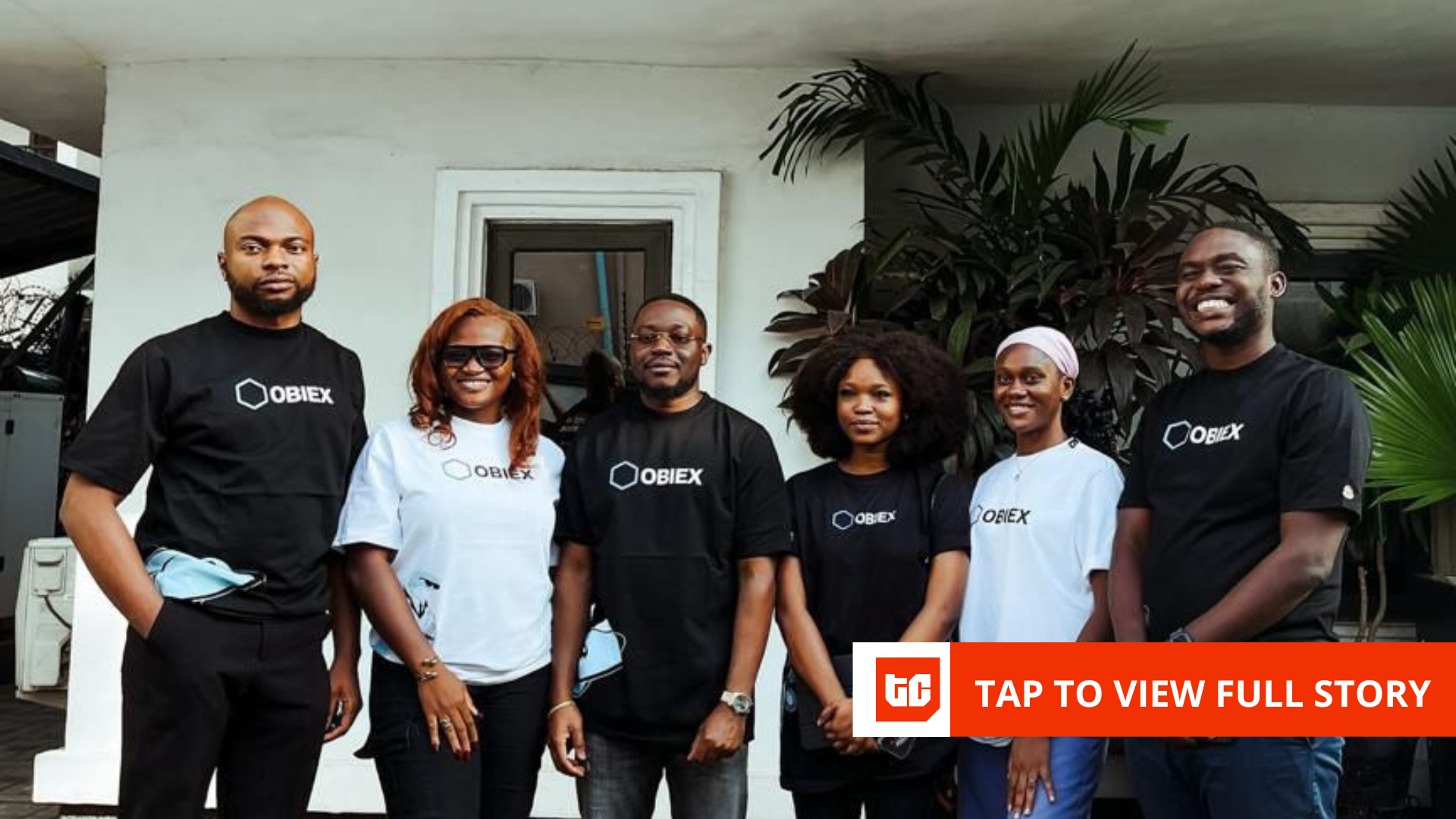Obiex, a Nigerian crypto startup that allows users to speculate and trade digital assets, says it is now profitable. The bootstrapped startup has processed $731.5 million in annualised transaction volume, serving more than 100,000 retail users. It claims that a significant portion of this activity comes from high-value retail customers who trade large volumes daily.
Low retail transaction volumes and narrow spreads often push crypto startups to focus on institutional clients. Obiex, however, is building around high-volume retail traders as its core users, proving that the segment can still generate significant value and profitability.
“We started making money from day one,” Ikechukwu Okeke, Obiex CEO, told . “We bootstrapped Obiex and have reinvested everything back into the business to keep growing.”
The startup’s total transaction volume (TTV)—the cumulative value of executed trades on its platform, excluding deposits and withdrawals—grew from $588 million in 2024 to $832 billion so far in 2025. About 70% of its trading volume comes from retail users and 28% from business customers. Year-to-date in 2025, the platform’s active users traded an average of $211,000 each, according to internal data seen by .
While Obiex launched an over-the-counter (OTC) business in April to provide services to high-net-worth individuals and institutions that want to buy and sell digital assets in bulk, most of the startup’s revenue still comes from high-frequency retail crypto traders who speculate on price movements daily.
Obiex operates primarily in Nigeria, runs a trading app in Cameroon, and is now planning an expansion into Ghana, a market that recently published a regulatory framework for virtual assets.
A bootstrapped journey from payments to trading
Obiex’s story starts almost a decade ago. In 2016, Okeke discovered Bitcoin while teaching private lessons as a university student. He soon abandoned tutoring to explore what he called a “game-changing” idea.
His first product was a crypto payment gateway that allowed merchants to accept Bitcoin and, later, stablecoins. Okeke describes it as “a Paystack for crypto.” But the product struggled to scale. Businesses saw crypto less as a payment tool and more as a store of value.
By 2018, the founders—Okeke and Chidozie Ogbo, who serves as CTO—pivoted to what became the first version of Obiex: an off-ramp product that allows users to convert crypto to naira instantly through a “sell wallet.” It worked until the Central Bank of Nigeria’s (CBN) ban on crypto in February 2021, which blocked exchanges’ access to banks and payment partners.
“When the CBN pulled the plug, we couldn’t process automated payouts anymore,” said Okeke. “We tried to run it manually, but it wasn’t scalable.”
The ban cut Obiex off from the payment service providers and partner banks it used to automate transactions, making its off-ramp product impossible to sustain. The startup went back to the drawing board to rethink what traders actually needed and how it could keep serving them without direct banking access.
In June 2021, the crisis forced another reinvention. Obiex rebuilt itself as a retail trading platform that solved one of the hardest problems for local traders: volatility and confirmation delays. Okeke said most crypto startups now enable fiat deposits and withdrawals through payment service providers.
Making crypto trading faster and less risky
Before Obiex’s trading platform emerged, Nigerian crypto traders often had to wait for multiple confirmations before seeing Bitcoin deposits reflect on exchanges, exposing them to sudden price swings. Obiex built a system that allows traders to lock in value instantly, removing that risk.
It turned out to be a simple change with an outsized impact. Traders could now buy and sell in seconds, even during volatile market conditions.
“We helped create trading volume in the market,” said Okeke. “People started trading more because they could manage their risk better. For many traders, Obiex isn’t just a wallet. It’s part of their trading journey.”
Since its last pivot in 2021, Obiex has processed $2.93 billion in TTV and is on track to cross $3 billion by the end of 2025. It currently employs 40 people and continues to operate without venture funding.
Running a profitable business
Obiex’s founders say they’ve collectively invested about $150,000 in operational funding and provided liquidity themselves in the early days to keep trades flowing.
The startup sources its liquidity in-house, allowing it to control spreads and keep execution fast. While Okeke declined to share specific revenue figures, he claims Obiex is capital-efficient and ranks among the top retail crypto platforms in revenue per active user.
After establishing itself in Nigeria and Cameroon, Obiex now has its sights set on Ghana, South Africa, Tanzania, Kenya, and Rwanda.
The startup says Ghana is its immediate priority, partly because of the Bank of Ghana’s (BoG) new policy paper on virtual assets, released on November 5. The paper outlines a path for regulating crypto trading and wallets, noting that over 3 million Ghanaians already use digital assets. The regulatory clarity forming in the country is enticing for players like Obiex, said Okeke.
Tanzania and South Africa are also attractive, he adds, because of their growing adoption and “openness to digital assets.”
In a market where African digital asset operators, such as Yellow Card, are pivoting toward institutional-grade clients, Obiex is doubling down on the retail trading opportunity.
The startup believes there’s still value in serving the high-frequency, high-value crypto users who trade daily and treat digital assets as speculative instruments rather than payment tools.









